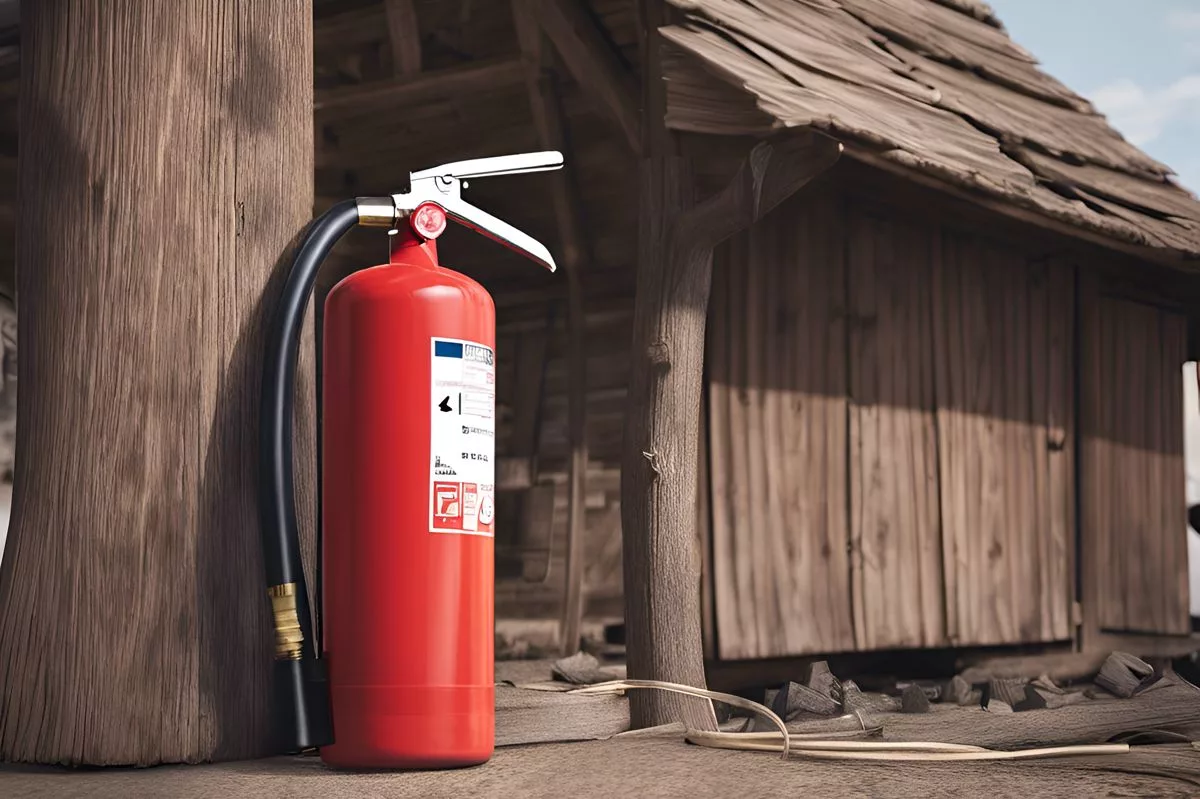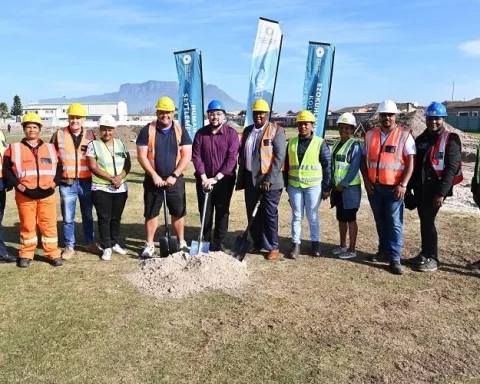South Africa’s informal settlements are plagued by the increasing incidence of shack fires, but community-based firefighters can combat this problem. The Lindokuhle Mayabo Foundation is an NPO that trains jobless youths to become community-based firefighters who work with the local fire department and medical teams to mitigate the loss of lives during such catastrophic events. The Foundation offers a proactive countermeasure to the shack fire crisis and potentially revolutionizes disaster management in South Africa, with collaborations between metropolitan fire departments and medical experts paving the way for similar initiatives in other cities. The Lindokuhle Mayabo Foundation shines as a beacon of promise, demonstrating the strength of community spirit, resilience, and determination.
Can Community Firefighters Help Combat South Africa’s Shack Fires?
Yes, community-based firefighters can be a crucial strategy in combating the increasing incidence of shack fires in South Africa’s informal settlements. The Lindokuhle Mayabo Foundation is an NPO in the Eastern Cape that focuses on honing the skills of jobless youths to become community-based firefighters. These individuals work with the local fire department and medical teams to mitigate the loss of lives during such catastrophic events. The Foundation offers an impressive, community-grounded countermeasure to the shack fire crisis, potentially revolutionizing disaster management in South Africa.
In the Eastern Cape’s heartland, a proactive Non-Profit Organisation (NPO) – the Lindokuhle Mayabo Foundation – is stirring up glimmers of hope amid the grim specter of shantytown fires. Drawing inspiration from its pioneering founder, the organization concentrates on honing the skills of jobless youths to become community-based firefighters.
From Personal Experiences to Proactive Measures
Abreast with the harsh reality of shack fires, having grown up in the informal settlement community of Mzamomhle in Buffalo City, Lindokuhle Mayabo harbors a profound understanding of their destructive capacities. Her first-hand experiences have solidified her belief in prevention as a key strategy to combat such disasters. The cornerstone of the foundation lies in assembling a group of committed community firefighters. These individuals would work hand in hand with the local fire department and medical teams, aiming to mitigate the loss of lives during such catastrophic events.
The pressing need for such community-oriented programs is undeniable. With disaster rearing its ugly head, metropolitan fire departments often face challenges in rendering timely aid. The introduction of community-centered firefighters in every informal settlement could be a pivotal move, potentially sparing numerous lives and curbing significant property destruction.
A Growing Concern: The Frequency of Shack Fires
The increasing incidence of shack fires in Buffalo City Municipality (BCM) has highlighted the criticality of this problem. In September of the previous year, an inferno consumed over 50 shacks, rendering nearly 100 people destitute and without sustenance. The fire was presumed to have been ignited by “Izinyoka” or unauthorized electrical installations. For many years, these residents, lacking access to electricity, had resorted to this dangerous alternative to illuminate their homes.
Beyond just combating fires, Mayabo’s foundation is engaged in a fight against the severe threats they pose, including injuries and fatalities. The organization is actively soliciting support from the public, seeking contributions in the form of firefighting apparatus, fire extinguishers, and health and safety training to equip their community firefighters.
The Nationwide Crisis of Shack Fires
Regrettably, shack fires are not just confined to BCM. It’s a national problem in South Africa. Emergency Management Services reported over 1,500 shack fires in Johannesburg between 2022 and 2023, whereas Tshwane city recorded 153 shack fires during the same period. The Western Cape alone reported a staggering 9,000 shack fires from 2019 to 2021. These fires not only caused catastrophic property damage but also uprooted lives, displacing almost 17,000 people and causing more than 60 fatalities.
The Beacon of Hope: Lindokuhle Mayabo Foundation
In this bleak setting, the Lindokuhle Mayabo Foundation shines as a beacon of promise. It serves as a model of how community-driven initiatives can have a substantial effect. By enabling unemployed youths to become community firefighters, the organization is not only delivering a crucial service, but also presenting them with a viable career, potentially reshaping their socioeconomic outlook.
The Foundation’s vision of collaboration with metropolitan fire departments and medical experts could pave the way for similar initiatives in other cities. It’s a project that prioritizes prevention over remedying, and community over self. The efforts of the Lindokuhle Mayabo Foundation offer an impressive, community-grounded countermeasure to the shack fire crisis. It’s a strategy that, if effectively duplicated, could revolutionize disaster management in South Africa.
In essence, the work of the Lindokuhle Mayabo Foundation is a testament to the strength of the community spirit. It demonstrates that with determination and resilience, even the most severe challenges can be converted into opportunities for advancement. Although the journey towards eradicating shack fires is far from over, initiatives like these represent significant strides towards a safer future for South Africa’s informal settlements.
1. What is the Lindokuhle Mayabo Foundation?
The Lindokuhle Mayabo Foundation is a Non-Profit Organisation (NPO) in the Eastern Cape of South Africa that focuses on training jobless youths to become community-based firefighters who work with the local fire department and medical teams to mitigate the loss of lives during shack fires.
2. How can community-based firefighters combat the increasing incidence of shack fires in South Africa’s informal settlements?
Community-based firefighters can be a crucial strategy in combating the increasing incidence of shack fires in South Africa’s informal settlements. These individuals work with the local fire department and medical teams to mitigate the loss of lives during such catastrophic events.
3. How does the Lindokuhle Mayabo Foundation combat the problem of shack fires?
The cornerstone of the Lindokuhle Mayabo Foundation lies in assembling a group of committed community firefighters who work hand in hand with the local fire department and medical teams, aiming to mitigate the loss of lives during such catastrophic events. In addition, the organization solicits support from the public, seeking contributions in the form of firefighting apparatus, fire extinguishers, and health and safety training to equip their community firefighters.
4. Why is the problem of shack fires a growing concern in South Africa?
The increasing incidence of shack fires in South Africa’s informal settlements has highlighted the criticality of this problem, which is not just confined to one city or region. Shack fires cause catastrophic property damage, displace thousands of people, and cause fatalities.
5. How can initiatives like the Lindokuhle Mayabo Foundation revolutionize disaster management in South Africa?
Initiatives like the Lindokuhle Mayabo Foundation prioritize prevention over remedying and community over self. The organization’s vision of collaboration with metropolitan fire departments and medical experts could pave the way for similar initiatives in other cities, potentially reshaping disaster management in South Africa.
6. What does the Lindokuhle Mayabo Foundation represent for South Africa’s informal settlements?
The Lindokuhle Mayabo Foundation represents a beacon of promise, demonstrating the strength of community spirit, resilience, and determination. By enabling unemployed youths to become community firefighters, the organization is not only delivering a crucial service but also presenting them with a viable career, potentially reshaping their socioeconomic outlook.












